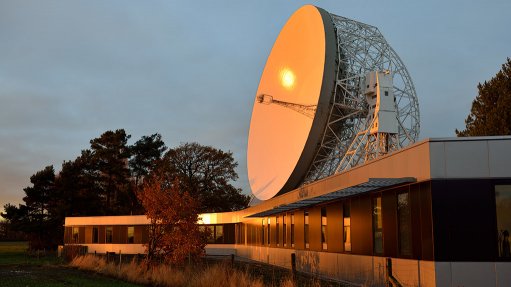
Ministers, Deputy Ministers and other representatives of South Africa, Botswana, Ghana, Kenya, Madagascar, Mauritius, Mozambique, Namibia and Zambia, participating in the First Ministerial Meeting of the Square Kilometre Array (SKA) African Partner Countries, on Wednesday agreed that they would work to conclude and sign a memorandum of understanding defining the spirit and scope of their cooperation, by June 30, 2015. This, in turn, will be the first step in the creation of a Multilateral Agreement, to be signed by January 1, 2018.
This was one of the Pretoria Resolutions, which encompass the outcomes of the First Ministerial Meeting, signed in Pretoria on Wednesday. "This is the first time that Ministers and Deputy Ministers have got together to agree on the way forward," South African Science and Technology Minister Derek Hanekom told a press conference after the signing.
The document contains ten resolutions. The nine countries reaffirmed their determination to establish Africa as a centre for astronomy facilities and science. They agreed to seek to complete the African Very Long Baseline Interferometry Network (AVN) and SKA African Readiness Strategy by March next year. This strategy will help the partner countries in getting ready to host the AVN and, later, SKA Phase 2 outstations.
The signatories also undertook to meet annually, as a formal AVN/SKA Ministerial Forum, ensuring political and strategic leadership for the AVN and SKA, as well as other radio astronomy projects and programmes. The Senior Officials Meetings, which have been taking place since 2006, will continue, every six months. These meetings will focus on strategic and operational issues.
The countries further agreed to set up a governance structure for African astronomy programmes, especially the AVN. They will also encourage each of the partner countries to set up the appropriate institutional mechanisms, in government departments, research bodies and universities, to ensure the success of the AVN and other radio astronomy programmes.
Each country is also encouraged to develop the appropriate human capital development programmes to develop pipelines of engineers, researchers, scientists, technologists and technicians, to ensure the success and sustainability of the AVN/SKA and other radio astronomy programmes. They also committed themselves to effectively taking part in the joint African/European Union strategic partnership and in African European Radio Astronomy Platform activities and projects.
Finally, the countries undertook to use current "bilateral synergies" and other, multicountry networks to develop cooperation in the agreed areas. "South Africa and eight African partner countries, nine of us, are committing ourselves to a very significant project," noted Hanekom.